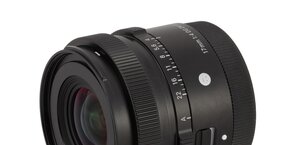Samyang 8 mm f/2.8 UMC Fisheye
9. Ghosting, flares and transmission

The graph is quite flat here and, in the wide range of the spectrum (an area near the centre of the visible part) the transmission reaches the level of 94-95%. It is really a good result. To understand how good it is you can compute the efficiency of one coating which covers one air-to-glass surface. The Samyang 8 mm f/2.8 UMC Fisheye has as many as 16 of such surfaces; it means that, in order to get the overall transmission result of 94-95 % you can lose only about 0.3-0.35% on one surface. Mind you, the level of 0.2-0.3% is reached only by the most reputable producers – the Samyang, which gets similar results (within the margin of error), should be praised here a lot.
Please Support UsIf you enjoy our reviews and articles, and you want us to continue our work please, support our website by donating through PayPal. The funds are going to be used for paying our editorial team, renting servers, and equipping our testing studio; only that way we will be able to continue providing you interesting content for free. |
- - - - - - - - - - - - - - - - - - - - - - - - - - - - - - - - - - - - - - - - - - - - - - - -
The tested lens is equipped with a built-in hood but it is too small to protect the device’s convex and quite large front element completely from the side light. You can notice light artifacts – they are especially pronounced at the maximum relative aperture, when the sun is situated inside the frame. On stopping down a noticeable flare is visible in the corner even if the sun is already outside the frame.
Despite those slip-ups the achievements in this category should be assessed in a positive way. The angle of view and a huge, convex front element always cause problems when it comes to the side light so it is difficult to fight efficiently the flares in such constructions.
 |
 |






